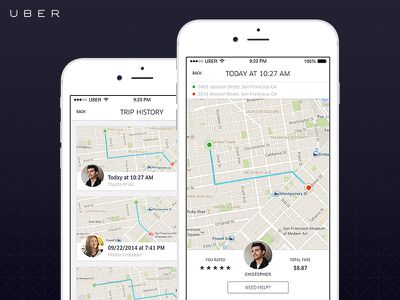Ride hailing company Uber is planning to spend $500 million on a global mapping project in an effort to reduce its reliance on Google Maps, according to The Financial Times.
The San Fransisco-based company already has mapping vehicles recording geographical data around the U.S. and Mexico. With Uber's presence in over 60 countries, the significant expansion reflects its continuing growth and adds to its existing investment in original research like driverless cars.

Last year, it hired world-leading digital mapping expert Brian McClendon, who previously ran Google Maps and was one of the creators of Google Earth.
McClendon will be responsible for the mapping project, and recently commented on the plans in a blog post without mentioning the $500 million figure:
The ongoing need for maps tailored to the Uber experience is why we're doubling down on our investment in mapping. Our efforts are similar to what other companies including Apple and TomTom are already doing around the world.
The street imagery captured by our mapping cars will help us improve core elements of the Uber experience, like ideal pick-up and drop-off points and the best routes for riders and drivers.
Address data in Google Maps is typically less accurate in developing countries, resulting in some Uber drivers having to call passengers to ask for their location before a pick-up. Uber hopes to nix these problems and feed the traffic pattern and location data already gathered by its cars into its own mapping system, thereby also avoiding charges for using Google Maps.
News of Uber's multi-million-dollar mapping investment was partially eclipsed by reports over the weekend that Chinese ride-hailing service Didi Chuxing is to acquire its Chinese operations in a $35 billion deal.
Apple's own $1 billion investment in Didi Chuxing back in May gave the Cupertino company access to data and expertise on electric and autonomous car technology, which is likely to help with its own car-related project, dubbed Project Titan, now led by veteran Apple executive Bob Mansfield.



















Top Rated Comments
Apple was forced to build their maps from scratch as Google tried to exploit the advantage limiting turn by turn directions to their own Android OS.
The move has proved catastrophic for Google, with iOS usage dropping from 100% to 20%. We're talking about the crème of the crème of mobile users, lost in a fell swoop.
As long as a company has the huge resources needed, they will build their own maps from scratch.
EDIT: clarity
If Uber's strategy is to move to driverless cars, then Google's maps in the current form are grossly inadequate. It's Uber's call whether they can rely on Google to address these deficiencies.
[doublepost=1470142218][/doublepost]I don't know about OSM, but if it's "open", it's going to be oriented toward human drivers. Uber needs a navigation map that meets the specific needs of robot drivers. If a contributor is allowed to put in an incorrect direction without verification, that's going to be a disaster for a robot.
Dealing with Google is disgustingly, and the perception of Google by the general public ("why didn't Apple keep using Google Maps and didn't create their own" they said) is twisted. Better start early.
That said, I'm sure they can all work together in some areas to reduce waste and redundancy... perhaps adopting and building upon Google's API's which can be used by governments and businesses to update street, transit and other vital info for all map makers.